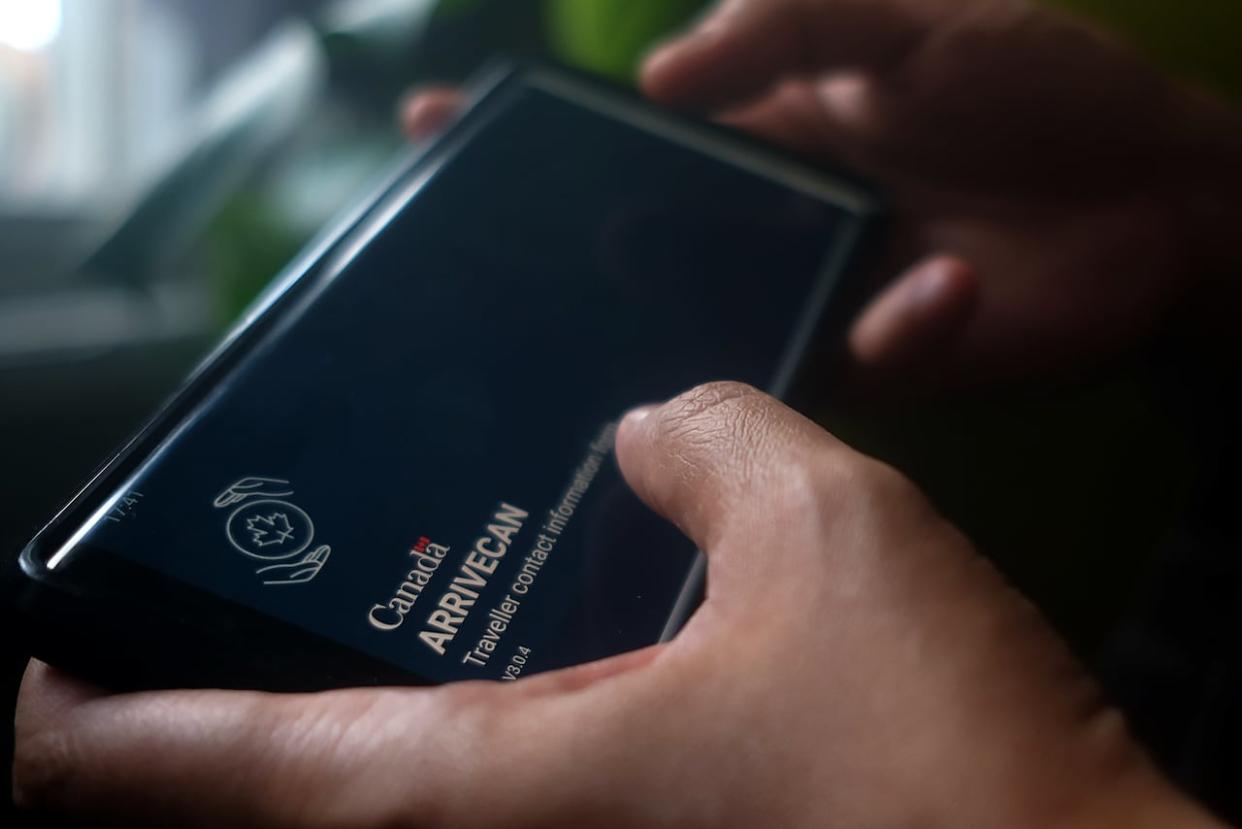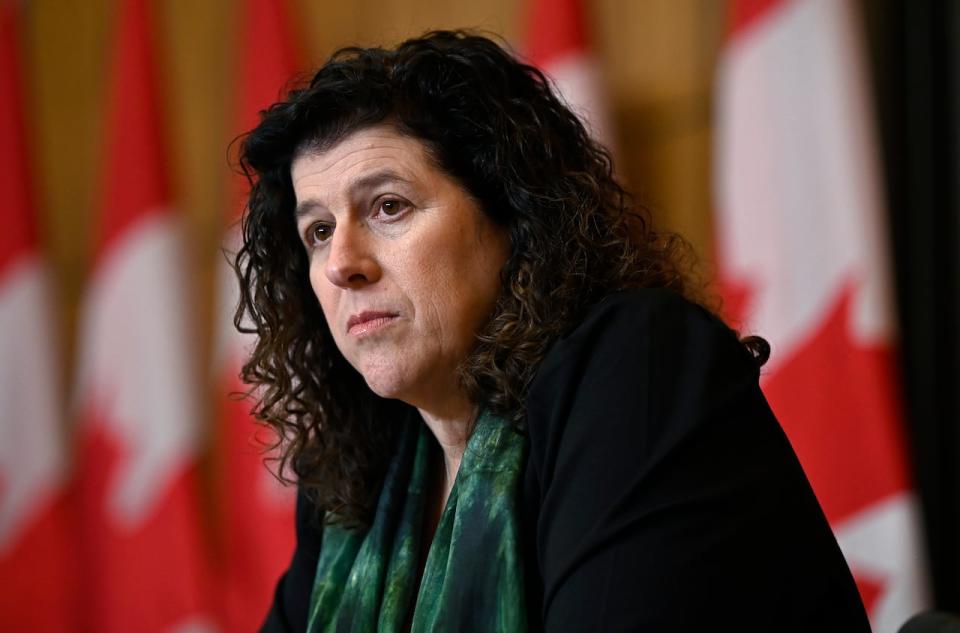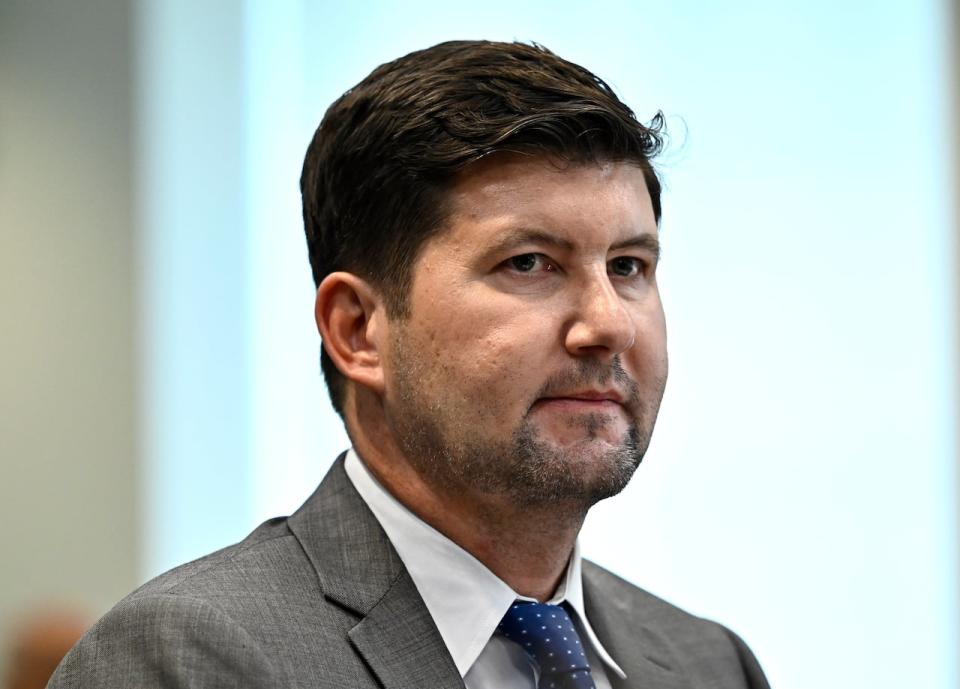Total cost of ArriveCan 'impossible to determine' due to poor record-keeping, AG report finds

The final cost of the controversial ArriveCan app is impossible to determine due to poor financial record-keeping, a new auditor general report has found.
It is just one of a slew of findings that Canada's Auditor General Karen Hogan highlighted in a damning report about the pandemic-era tool.
Overall, Hogan found that the Canada Border Services Agency (CBSA), Public Health Agency of Canada (PHAC) and Public Services and Procurement Canada "repeatedly failed to follow good management practices in the contracting, development and implementation of the ArriveCan application."
CBSA had previously said the development and operation of the app had cost an estimated $54 million.
Hogan estimates the project cost $59.5 million — but, as the report notes, she was only able to arrive at that figure based on the information available to her.
"We found that financial records were not well-maintained by the Canada Border Services Agency. We were unable to determine a precise cost for the ArriveCan application because of [the agency's] poor documentation and weak controls," the report reads.

The report by Auditor General Karen Hogan said federal agencies "repeatedly failed to follow good management practices in the contracting, development and implementation of the ArriveCan application." (Justin Tang/The Canadian Press)
The report says that 18 per cent of invoices submitted by outside contractors that had worked on the app didn't have "sufficient supporting documentation" to accurately determine the cost of the project.
CBSA heavily depended on third-party contractors to develop the app. The report cites that reliance as a major factor to its ballooning costs.
Hogan's report suggests that a reduction in the use of outside contractors could have also lowered costs and "enhanced value for money."
As an example, the report estimates that the per diem costs for external ArriveCan contractors was $1,090, whereas the average daily cost of an equivalent internal position is $675.
Firm helped develop criteria
There is also little documentation to show why or how the biggest contractor — GC Strategies — was initially chosen for the project.
The company is a two-person consulting firm that advertises itself as able to help companies navigate the government's procurement process.
GC Strategies was given a sole-source contract in April 2020 despite a lack of evidence that the firm provided a proposal document for the project, the report says.
Hogan notes that at least one other firm provided an initial proposal for the same contract.

Alexander Jeglic, Canada's procurement ombudsman, found the criteria used in awarding one contract "heavily favoured" GC Strategies. (Justin Tang/The Canadian Press)
The report indicates that the auditor general couldn't determine which government official made the final decision to select GC Strategies for the April 2020 contract.
And Hogan also found that GC Strategies was later involved in developing requirements that were later used for a competitive contract. That contract — valued at $25 million — was awarded to GC Strategies, the report says.
"In our view, flaws in the competitive processes to award further ArriveCan contracts raised significant concerns that the process did not result in the best value for money," the report reads.
A previous report by Alexander Jeglic, Canada's procurement ombudsman, found that the criteria used in awarding the $25-million contract were "overly restrictive" and "heavily favoured" GC Strategies.
CBSA officials invited to 'dinners and other activities'
Hogan's report also raised concerns about CBSA officials having a close relationship with certain contractors, noting that the officials in question were invited "to dinners and other activities."
Those officials did not disclose information about these invitations to their supervisors, which "created a significant risk or perception of a conflict of interest around procurement decisions."
The report notes that a further investigation into these findings were not pursued because they are subject to ongoing investigations by the CBSA and the RCMP.
The CBSA has been conducting an internal investigation of the ArriveCan contracts. Agency president Erin O'Gorman told the House government operations committee last month that the investigation's preliminary findings caused her great concern.
O'Gorman said the investigation found "a pattern of persistent collaboration between certain officials and GC Strategies. They show efforts to circumvent or ignore established procurement processes and roles and responsibilities."
O'Gorman cautioned that the investigation is still ongoing, but a copy of the preliminary findings was provided to MPs on the committee last week.


